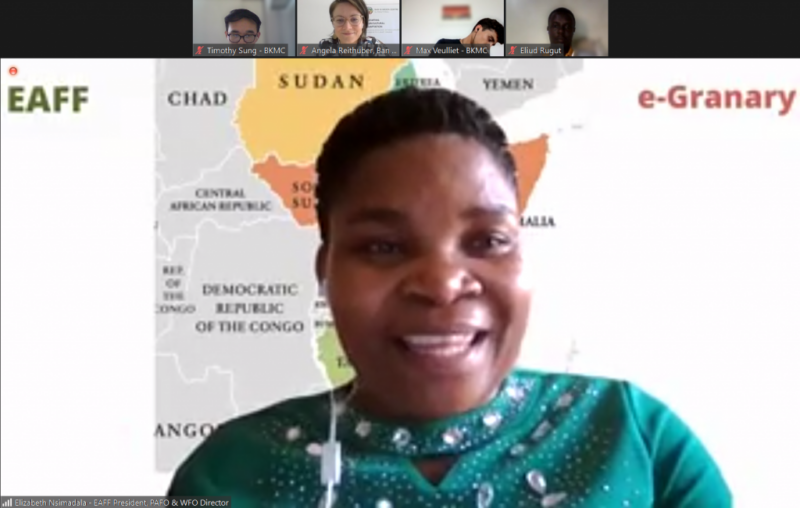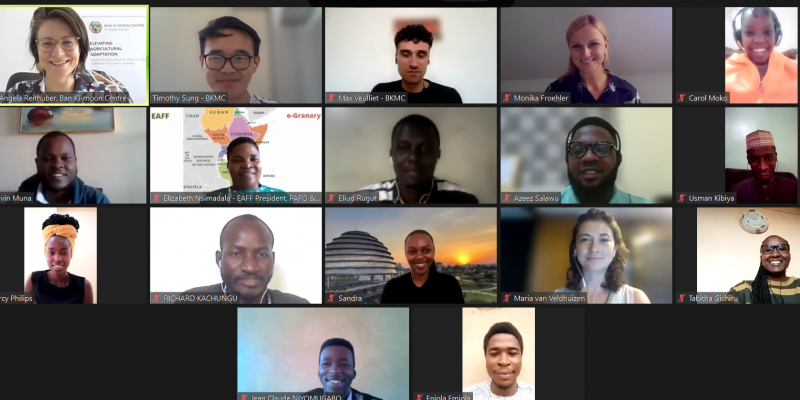The Youth Agri Champions Webinar Series is underway. Launched with speeches from CEO Monika Froehler and Elizabeth Nsimadala, President of the Eastern Africa Farmers Federation, 16 youth agripreneurs and smallholder farmers have started working towards developing demands on climate adaptation in agriculture for COP27.
The Youth Agri Champions Webinar Series kicked off on July 28th, with 16 smallholder farmers and agripreneurs from Kenya, Nigera, Rwanda, and Zambia. Over the course of three workshops spanning a month, the Youth Agri Champions will develop a set of demands on climate adaptation in the field of agriculture. The BKMC’s Co-Chair, former UN Secretary-General Ban Ki-moon, and the BKMC team will then take on these demands for COP27 and in their global advocacy work to promote the climate adaptation needs of smallholder farmers.
“Opening the webinar series was the BKMC’s CEO, Monika Froehler. While thanking the Youth Agri Champions for taking part, she underlined the important role that they play in leading their communities in adapting agriculture to climate change. In outlining the importance of the Youth Agri Champions voices, Froehler remarked that “Your valuable on-the-ground first-hand experience will provide great insights into the impact of climate change on agriculture.”
After a presentation from the Elevating Agricultural Adaption Program Manager, Angela Reithuber, on the BKMC’s work on supporting smallholder farmers in agricultural adaptation to climate change, the Youth Agri Champions were joined by, Elizabeth Nsimadala, the Director of Women Affairs at the Pan-African Farmers Organization and the President of the Eastern Africa Farmers Federation. As a particular highlight for the participants, Nsimadala gave an inspiring speech filled with plenty of tips and motivation. She addressed the need for cooperation and enthusiasm in the drive for agricultural adaptation to climate change and sustainable agriculture.

During the last stage of the first workshop, the Youth Agri Champions got down to work, sharing their own experiences and exciting projects with each other. Split into three working groups (funding/finance, social risk management, and training/capacity building) they began developing their own ideas on adaptation to climate change in agriculture. In these areas, the Youth Agri Champions worked on identifying the status quo and current obstacles hindering greater adaptation efforts. Promising and stimulating discussions took place on topics including climate-smart technology, crop diversification, crop insurance, and awareness raising.
Over the next two weeks, the Youth Agri Champions will work together to build upon these discussions and develop their ideas from the first workshop further, with the aim of developing concrete demands in the second workshop. The second workshop will take place on the 11th of August.

